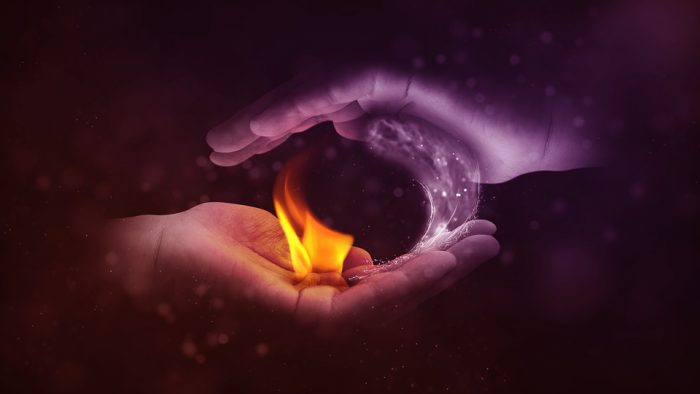I suppose I’m due one of these, really: one of those nights where two in the morning comes and goes; then three; then four.
Right now, it’s nearly six o’clock. I can see it getting lighter through my curtains; I can hear the occasional car drive down the street. Where are these people going? To the gym? To work?
Perhaps they just couldn’t sleep either and they’ve decided since they’re awake, they might as well use these dark hours to their advantage. Perhaps they were awake late into the night, too, thinking about their relationships.
That’s what brought me out of bed in the first place, a few hours ago. I was lying next to my partner who’s just gotten back in town, restless and mind racing.
Why am I being like this? Why am I not being more nurturing and soft? Why do I feel so unsafe lately?
Finally, I just got out of bed and sat down with my journal and a snack. About an hour of mad scribbling and some cold leftovers later, I felt like I got some clarity on a certain aspect of relationship that might be useful to some other slightly over-caffeinated someone out there, also sitting awake in the middle of the night, wondering, What’s happening here?
Polarity.
This refers to the relationship between two opposite or seemingly contradictory tendencies. This might look like the two opposing sides of a debate or the good guy and the bad guy in the superhero movie. In nature, we see polarity in positive and negative charges; life and death. We see it in molecules; we see it in the way night always follows day.
What you’ll notice here is that polarity is about the relationship – the connection – between the two poles. There could be no darkness without light; no love without hate; no solidity without softness.
In Chinese philosophy these polar energies can be summed up with the terms yin and yang. Now, it’s six in the morning and I haven’t slept all night, so I am going to be gravely oversimplifying this. But in short, the idea is that these seemingly contradictory or opposite universal energies balance and need one another. The translation literally means “dark/light” or “negative/positive.”
The qualities of Yin energy include:
- Passivity
- Intuition
- Creativity
- The moon
- Dark
- Cold
- Submission
- Emotionality
- Contraction
- Downward movement
- Night
- Softness
- Still waters
- Quiet
- Feminine
And the qualities of Yang energy include:
- Activity
- Active waters
- Logical thinking
- Enlightenment
- Brightness
- Sun
- Light
- Creation
- Dominance
- Upward energy
- Strong
- Hot
- Expansion
- Hard
- Movement
- Mountains
- Masculine
You may have noticed this, but in the West we like to oversimplify beautiful Eastern philosophies into neatly packaged items that work for our language and culture, so many people often equate “Yin” with “feminine” and “Yang” with “masculine.”
Unfortunately, because these words are so closely tied with gender, some people miss the boat and think that women are either constantly more yin, or should be, and men are constantly more yang, or should be. And this is 2019 and by now, I think we’ve all lived enough life and seen enough examples to agree that this is simply not true.
So in this article, I’ll be referring to these poles as yin and yang – for no other reason than language is limited, and when trying to describe something as universally, inexplicably, magically, and beautifully True as polarity, well, using words with strong cultural associations feels constricting.
I’m making a big deal about choosing the words yin and yang versus feminine and masculine, because I don’t want to be misunderstood when I say what follows:
In every romantic or sexual relationship, there must be polarity; a balance of yin energy and yang energy. It doesn’t matter your gender identity or sexual orientation; polarity is what creates attraction.
If we’re embodying more of the yin energy, we’re going to attract someone who is more yang (at that time – we all fluctuate.) If we’re more yang in the moment, we’ll attract someone who is more yin.
Here’s where it gets interesting: if for whatever reason I swing the other direction – perhaps I naturally inhabit a more yin energy, but let’s say, I live in a culture that rewards yang energy, I’m up against a deadline, and under immense pressure to do, do, do! – well, I might find myself expressing a more yang energy. If I am in partnership, chances are high that my partner will naturally move into a yin energy to complement me.
If my partner is naturally more yang and he/she/they slip into a more yin energy, I will likely balance the scales by becoming more yang.
This sort of balancing act is natural – the most natural thing in the universe, really – but this is where it gets tricky, and personal:
As a heterosexual woman who prefers to be the more yin person in partnership, I am sexually and romantically drawn, almost exclusively, to yang energy. And while my partner and I are still balancing each other, in the past few weeks, we seem to have switched roles.
And what that looks like is: the more yin he is, the more yang I am; the more yang I am, the more yin his; the more yin he is, the more yang I am…
You see where this is going.
I believe this is the same thing attachment theory psychologists refer to when they describe the “anxious / avoidant” cycle. One partner leans in, so the other leans away, so the other leans in more, so the other leans away more, and on, and on.
We will constantly balance our partners, whether we are aware of it or not, because this is the way of the universe.
So what exactly does this mean for us poor saps in loving romantic relationships, but seemingly, controlled by universal forces greater than us?
It means that we need to first become aware of what the hell we’re actually doing. Am I embodying yin energy or yang energy? Is my partner polarizing to me, doing the opposite? Or are we not polarized at this moment?
Remember, all these things fluctuate throughout a relationship. If we are polarized, are we both sitting in our desired poles for the health of our relationship and for us as individuals?
If not – somebody needs to make a change. For example, in my relationship: the more soft, still, loving, and yin my partner is, the more I am hard, moving, and yang. So far, his response to my doing this has been one of more softness and patience and care. And the thing that I am getting is –
I need yang. As yang as I am being, I need my partner to be even more yang, so yang that I then become the yin in the dynamic by comparison, in order to reverse our roles.
Or, he needs me to become more yin. The point is: somebody has to change.
On the other hand, if we are not polarized at all in this moment, are we okay with that? Remember that polarity creates attraction – desire – want. In a partnership, we need more than attraction; we need friendship. So in the moments when we’re not feeling polarized to each other, we are friends. This is healthy, and only becomes problematic in romantic partnership when sex and romance (polarity) are replaced solely and forever with friendship (non-polarity.)
If this is happening, as tends to happen in many long-term relationships, look first at the polarity. If you’re not polarizing – or perhaps are but find yourselves in your less preferred pole – just take a look at that list of traits for yin and yang. If you want to be more yin: Be still. Meditate. Swim. Walk barefoot under the moon. Rest. Practice being soft. If you want to be more yang: Move. Be solid. Strong. Assertive. Directional.
There is no one energy that fits all, and we all fluctuate throughout our days, our lives, our relationships. But if I have learned one thing in this past 10 weird hours it’s this: polarity and romance go hand in hand. Also, cold quinoa and veggies are dope.
And now, I’m going to bed.







Read 0 comments and reply